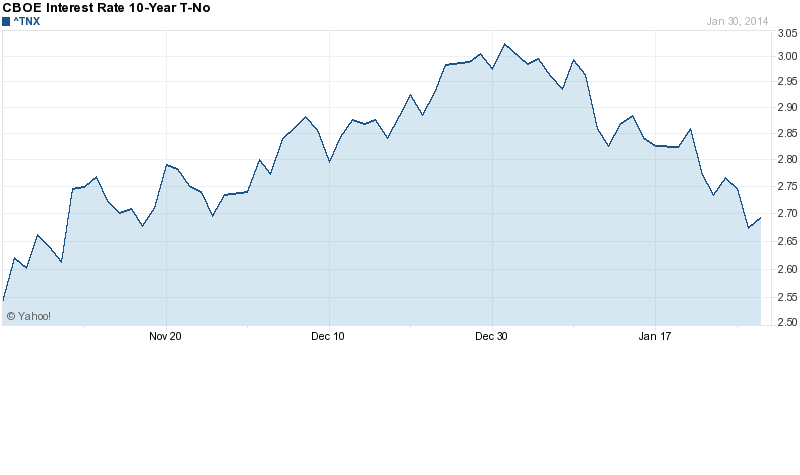NonTraded REITs One More Way for Investors to Be Parted from Their Money
Post on: 6 Октябрь, 2015 No Comment

A real estate investment trust (REIT) is a security that trades like a stock on the major exchanges and invests in commercial real estate directly, either through properties or mortgages. They commonly invest in shopping malls, hotels, office buildings, apartments, and warehouses. To maintain their tax-exempt status at the corporate level, REITs are required to distribute at least 90% of their earnings to shareholders. Due to their relatively low correlation with equities and their high expected returns relative to their risk, IFA has long advocated holding REITs as part of a diversified portfolio. The most efficient way to accomplish this is through a REIT index fund from a reputable company, such as Dimensional or Vanguard. The securities that are held by these REIT index funds are all publicly traded, so the net asset value of the fund is objectively determined by the market on a daily basis. Investors in these vehicles have the benefits of both liquidity and transparency. The same cannot be said for REITs that are not traded on any of the stock exchanges.
Non-traded REITs have raised an astonishing $73 billion from investors over the last decade. Their allure derives from promised yields of around 7% (compared to about 3% for publicly traded REITs) and low volatility due to the fact that the price is whatever the managers of the REIT decide to report at the end of each quarter. The brokers who sell them often make around 10% at the front-end plus trailing commissions. Sadly, their unwary clients have a poor understanding of the risks of these securities. Specifically, they may not know that the dividend checks they receive may be the result of borrowing by the REIT which substantially increases its risk of bankruptcy in a market downturn. They also may not be aware that the value of their investment that is reported to them is not objectively determined. Although the sellers of these vehicles will claim that all of this information is disclosed in the prospectus, we know that the number of investors who actually read prospectuses is vanishingly small. Thankfully, the Securities and Exchange Commission has decided to intensify its scrutiny of non-traded REITs, but it now appears that much of the damage has already been done.
One of the many cases that may have inspired the SECs new resolve centers around the Apple REITs (no connection to Apple Inc.) that were (and still are) sold through David Lerner & Associates (DLA). The Financial Industry Regulatory Authority (FINRA) has filed a complaint against DLA, charging the firm with soliciting investors to purchase these REITs without conducting a reasonable investigation to determine whether they were suitable for investors, and with providing misleading information on its Website regarding the REIT distributions. FINRA alleges that DLA is, targeting unsophisticated and elderly customers with unsuitable sales of the illiquid security. Since 1992, DLA has sold $6.8 billion of these securities into over 122,000 customer accounts, generating about $600 million in commissions since 1996. FINRA alleges that:
Since at least 2004, the Apple REITs have unreasonably valued their shares at a constant price of $11 notwithstanding market fluctuations, performance declines and increased leverage, while maintaining outsized distributions of 7 to 8% by leveraging the REITs through borrowings and returning capital to investors. As sole distributor, DLA did not question the Apple REITs unchanging valuations despite the economic downturn for commercial real estate.
As one reads through this FINRA complaint, he cannot help but be struck by the similarity of the relationship between DLA and Apple REITs to the relationship between Fairfield Greenwich and Bernie Madoff. In both cases, the former is (or was) merely a feeder fund to the latter, and due diligence has been defenestrated. One would be hard put to find a stronger argument for the fiduciary standard of registered investment advisors over the suitability standard of brokers.

As far as IFA is concerned, non-traded REITs are just one more item on a long list of Wall Street innovations that investors should avoid at all costs. Other items on this list include structured products. limited partnerships, hedge funds. leveraged/inverse ETFs, et. al.
Follow-Up: As reported in the 7/18/2011 issue of InvestmentNews, clients of David Lerner Associates Inc. holding shares in non-traded REITs created by Apple REIT Cos. Inc. received account statements at the end of last month (June, 2011) in which the longtime value of the shares was shown as not priced. Many of these clients have contacted attorneys.
Follow-Up: On 10/22/2012, FINRA issued a press release stating that DLA had been sanctioned for $14 million for unfair practices in the sale of Apple REIT Ten and for charging excessive markups on municipal bonds and CMOs. Customers are to receive $12 million of the $14 million with the remainder paid as a fine. In addition, FINRA fined David Lerner himself $250,000 and suspended him for one year from the securities industry. According to FINRA, David Lerner personally made false claims regarding the investment returns, market values, and performance and prospects of the Apple REITs at numerous DLA investment seminars and in letters to customers. His characterizations included terms such as a fabulous cash cow and a gold mine. Unfortunately, Mr. Lerners victims were not sophisticated enough to know that when an investment sounds too good to be true, well, you know the rest.














